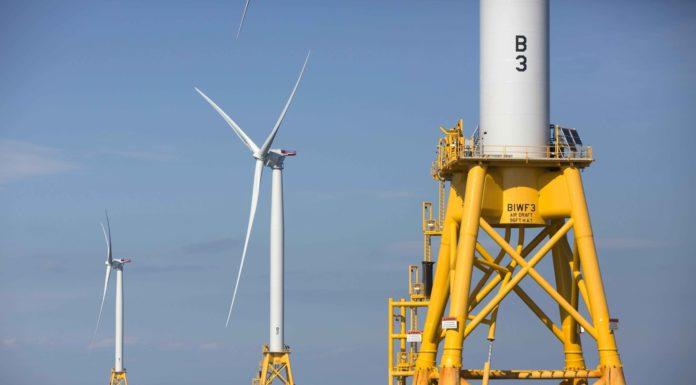(Molly Bruns, Headline USA) Federal regulators who manage fisheries off the coast of New England recently made an official announcement admitting that the Biden administration’s push for offshore wind farming was killing species of local fish and other marine wildlife.
Thomas Nies, executive director of the New England Fishery Management Council, cited a study that discovered high voltage direct current power cables, used by many wind farms, emit magnetic fields that effect the migration patterns of haddock, the Daily Caller reported.
Nies and the NEFMC are a government entity that claims responsibility for “conserving and managing fishery resources.”
According to the study, the tubines affect the speed and instinctual navigation abilities of the haddock, making them easier targets for predators and fishermen.
Captain Jerry Leeman, a fisherman in the area, originally alerted Nies to the study and voiced his concern about impending plans for wind farms off the coast of Maine, where cod—which are very similar to haddock—spawn.
The effect of the cables through the sea would likely lead to population depletion of them and several other types of local fish.
The proposed projects would require the routing of the cables directly through the cod spawning grounds, where Leeman does much of his work.
“Thank you for your January 9 letter … . We were previously aware of this study and agree that it has concerning implications for the possible effects of high voltage direct current cabling on larval behavior and resulting predation rates,” Nies said in his response to Leeman.
“While most projects off the Atlantic coast are planning for alternative current transmission cables, this is not uniformly the case, and we are uncertain about the types of cables that might be used for projects in the Gulf of Maine,” he added.
Though the NEFMC has no official position on the environmental impact of the cables, the group may face some backlash over the continued endangerment of local species.
Recently, a spike in whale deaths off of the New England coast caught the attention of animal activist groups, who sent a letter to Congress warning of the need to halt construction to decrease noise, traffic and habitat changes to protect the species.

